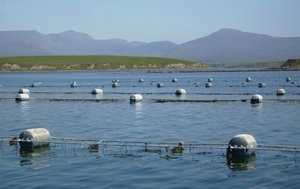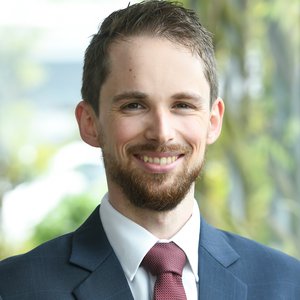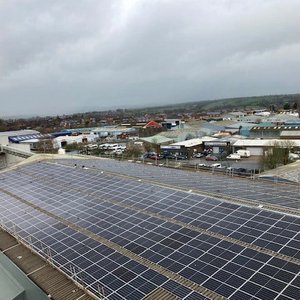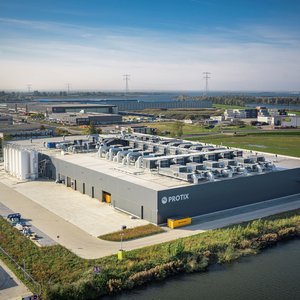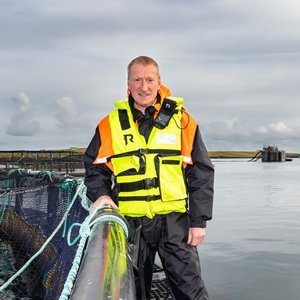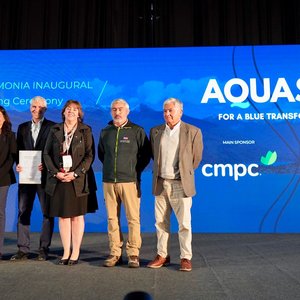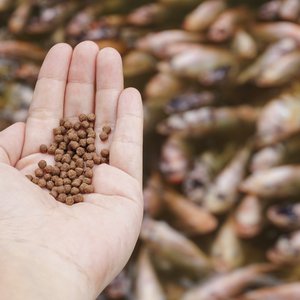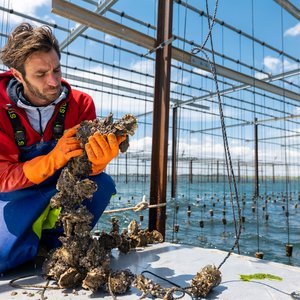EAS puts the emphasis on shellfish research
The European Aquaculture Society (EAS) has recently created a Thematic Group to bring together those interested in shellfish research in Europe. The group will prepare a strategic shellfish research program that will provide input for the European Aquaculture Technology Platform and the European Commission. The research program will be presented at a special session of the Aquaculture Europe 2009 meeting, organised by EAS just before the Aqua Nor 2010 event in Trondheim, Norway.
EAS Executive Director Alistair Lane points out “The objective of the EAS Thematic Groups is to create a forum among EAS members that share a common interest within the wider aquaculture field and wish to take advantage of the EAS membership and its wide geographical reach of members”.
“They may be used to inform of latest initiatives; seek partners for new research; look to better manage research activities between organisations and institutes and give an insight into what is potentially (and hopefully) coming in the future”, he adds.
The group, named “Euroshell” by its moderator Aad Smaal and other founding members, was formed at the International Conference on Shellfish Restoration, held in November 2007 in the Netherlands. Aad Smaal, from IMARES, is pleased to see that things are now moving forward.
“Shellfish culture in Europe faces problems and opportunities” says Smaal “and the challenge is to further develop shellfish culture that gives high quality products produced in a sustainable way. This calls for a concerted approach of industry, government and science. Although within the EU various networks exist, it seems that the scientific shellfish culture expertise in Europe is not well organized. There is no platform and there are no regular symposia that are fully focused on (applied) shellfish research. As a consequence the impact on the European research agenda is limited and setting up common research projects as required for EU proposals, is complicated”.
Shellfish aquaculture has a long tradition in Europe. In the last century development has been quite extensive, while nowadays further development depends on new areas because in traditional areas there is stabilization or even production decline. At the global level, shellfish production has expanded rapidly and this is nowhere more obvious than in Asia.
Meanwhile, as a consequence of life style changes and interest in healthy food, the consumer market for fish and shellfish products is increasing. In traditional areas production limits are related to competing claims with, amongst others, recreation, nature conservation, coastal engineering and shipping regulation. New areas with culture potential face problems like competition with other users, knowledge gaps regarding carrying capacity, impacts of harmful algal blooms, sanitary control and development of technical cultivation skills and facilities.
One of the major issues in extensive shellfish culture is to further develop a culture that is considered sustainable with respect to exploitation of natural resources, but also product quality, traceability, landscape impacts and acceptance by the general public have to be taken into account.
Traditional suspended and on-bottom shellfish culture is based on natural processes for recruitment and food production and transport. As no additions are required it is an extensive culture that is based on low food chain production. It therefore has a great potential for sustainable production. Still problems have to be resolved such as the relation with other functions.
Projects to integrate shellfish culture with other claims are dealt with in the coastal zone management approach. The implementation of the European Bird and Habitat Directives require more attention to impact evaluation. The measures resulting from actual water quality management and from the European Water Framework directive require evaluation of carrying capacity for shellfish production. This addresses not only the quantity but also the quality of the primary production. Carrying capacity studies are also relevant to evaluate the potential of new and existing culture areas for extension of production units. Extensive cultures also are impacted by the effects of climate change.
Dependence on natural recruitment, and particularly recruitment failure in recent years, sets the agenda for the development of alternatives such as import form elsewhere, enhancement of recruitment by spat collection or controlled production in hatchery/nursery systems. However, increased transplantations of spat calls for risk analyses of introductions. Application of large scale spat collection requires space and investments.
Hatchery/nursery systems for new species require research, development and investment
As a response to the limits of extensive culture now intensive shellfish farming has developed in various areas. This includes land-based cultures of shellfish often in combination with other products. The coupling of culture types both intensive and extensive as IMTA (Integrated Multi-Trophic Aquaculture) has the potential to balance nutrient discharges or to generate bio-energy. This field of interest requires the development of new knowledge, techniques and management systems. As background for various culture innovations basic knowledge development is required in the field of breeding and selection, physiology, ecology, modelling, integration but also for food science, economy and science based governance.
The general conclusion is that there is a sense of urgency for mobilizing knowledge and expertise in order to further develop sustainable shellfish culture in Europe. Setting up a thematic group under the EAS is considered relevant and should provide the basis of a productive shellfish expert network.
Through initial contacts, more than 50 persons from 18 countries have expressed an interest to participate in the Thematic Group and help to take things further.
EUROSHELL Country contact points:
Vacant - Belgium
Valentina Todorova - Bulgarian Academy of Sciences,Bulgaria
Per Dolmer - Technical University of Denmark,Denmark
Marianne Alunno-Bruscia/Rene Robert - IFREMER,France
Uwe Walter - Mytilamar,Germany
Sofia Galinou-Mitsoudi - Alexander Technological Educational Institute of Thessaloniki,Greece
Vacant - Iceland
Gavin Burnell - University College Cork, Ireland
Roberto Pastres - University of Venice-Italy
Aad Smaal - Wageningen IMARES, Netherlands
Oivind Strand - Institute of Marine Research, Norway
Vacant - Portugal
Dragos Micu - National Institute for Marine Research & Development Grigore Antipa, Romania
Antonio Villalaba - Centro de Investigacions Marinas, Spain
Lars Ove Loo - Goteburg University, Sweden
Umur Onal - Canakkale Onsekiz Mart University, Turkey
David Roberts - Queens University, UK
Persons acting as moderators and country contact points (see above) will bring together feedback from questionnaires that will be distributed widely during 2008 to gauge opinion and bring together ideas on priorities.
The EAS Aquaculture Europe 2009 meeting is currently being planned, and the general conference theme will be “New Research Frontiers”. The conference will be held in Trondheim, Norway, just prior to the Aqua Nor exhibition.
“Having an extended session in AE2009, especially given the general theme is most appropriate”, said Aad Smaal.
“Furthermore, Norway has shown that development of its mollusc sector is quite possible, despite the challenges. I hope very much that Euroshell will be able to deliver a strategic research programme framework at AE2009 that reflects the needs of the sector and represents a consensus of the participants”.
Wide participation is Euroshell is welcomed and available to all EAS members, whatever their country of residence. Contact Aad Smaal or the EAS secretariat for more information.
Suspended rope culture of mussels in Ireland – part of the Irish strategy to develop its seafood production (Photo courtesy of BIM)


